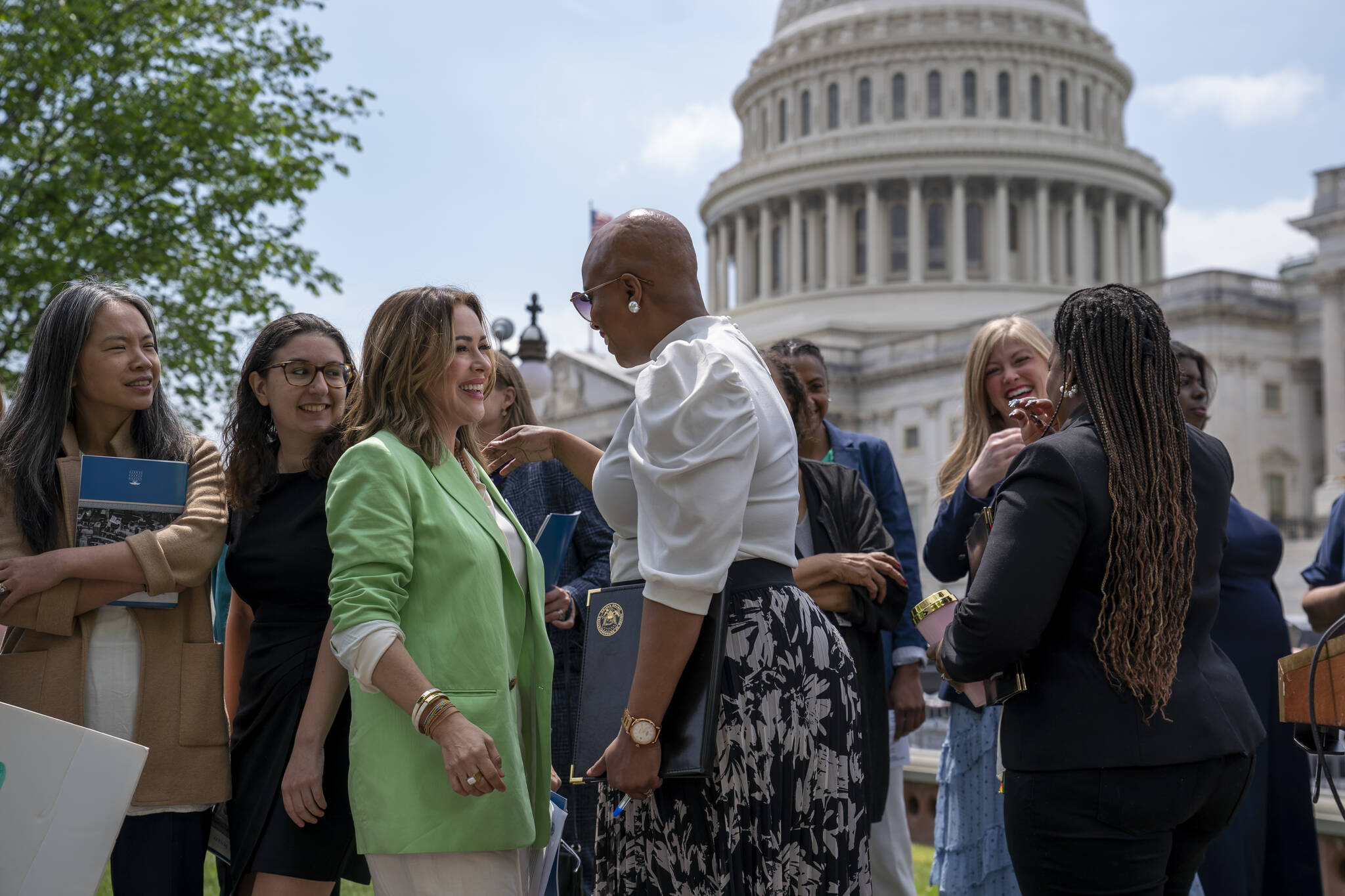WASHINGTON — Senate Republicans on Thursday blocked a Democratic measure to revive the Equal Rights Amendment, dealing yet another blow to supporters who have pushed for more than five decades to amend the Constitution to prohibit discrimination based on sex.
Democrats failed to win the necessary 60 votes to move forward with the resolution, which would have removed a 1982 deadline for state ratification and reopened the process to amend the Constitution.
The 51-47 vote included support from two Republicans, Maine Sen. Susan Collins and Alaska Sen. Lisa Murkowski — well short of the 10 GOP votes needed.
In a statement, Murkowski expressed disappointment with the outcome.
“I am disappointed that our resolution to remove the deadline for ratification of the Equal Rights Amendment did not advance the Senate,” she said. “This is the third Congress I have co-led a resolution with my colleague, Senator Cardin from Maryland, to remove the deadline for ratification of the ERA by the states – a step that is far, far overdue. Men and women should be treated equally under the law, and there should be no time limit on equality. It is far past time for Congress to act. To the many advocates who’ve worked alongside us in this effort — know that I will not give up this effort.”
Senate Majority Leader Chuck Schumer, D-N.Y., put the resolution up for a vote this week, even as it was unlikely to pass. He said it was especially timely in the wake of the Supreme Court’s decision last year to overturn Roe v. Wade and the constitutional right to an abortion.
“Women in America have far fewer rights today than they did even a year ago,” Schumer said.
After the vote, Schumer said the Senate is “not giving up,” and would keep trying to pass the measure.
Congress sent the amendment, which guarantees men and women equal rights under the law, to the states in 1972. It gave states seven years to ratify it, later extending the deadline to 1982. But the amendment wasn’t ratified by the required three-quarters of states before the deadline.
Three years ago, however, Virginia lawmakers voted to ratify the amendment, becoming the 38th and final state needed.
At the same time, several states — including Nebraska, Tennessee, Idaho, Kentucky and South Dakota — have attempted to remove their prior approval.
States can support the federal version individually, though it is not ratified into the U.S. Constitution, so those ratifications remain mostly symbolic.
In a statement of policy, the White House said that President Joe Biden “strongly supports” extending the deadline and that it is long past time.
“Gender equality is not only a moral issue – the full participation of women and girls across all aspects of our society is essential to our economic prosperity, our security, and the health of our democracy,” the White House said.
Republicans have argued that Democrats are trying to rewrite history.
“The Democrats’ novel unconstitutional approach bypasses states’ rights and circumvents the process our founders put in place,” said Sen. Kevin Cramer, R-N.D., after the vote. “This is simply another liberal wish list item meant to drive a political wedge.”

